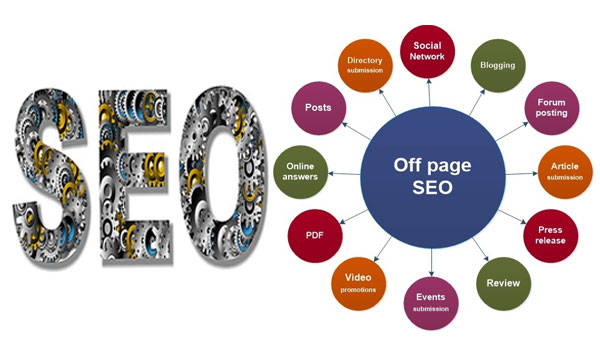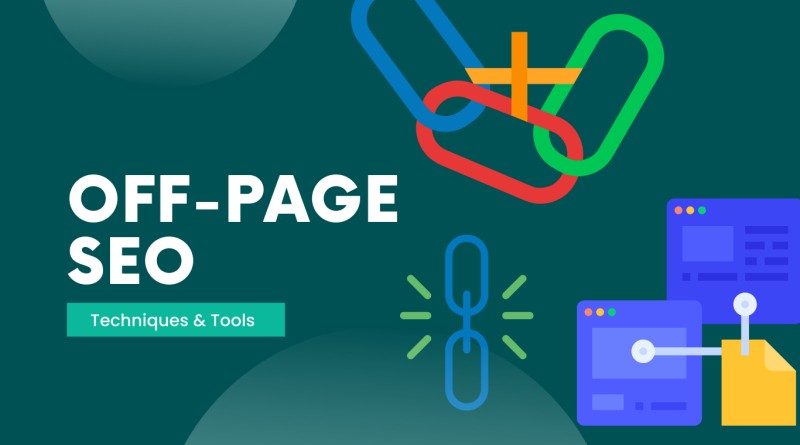Off-Page SEO Techniques That Actually Work
Search Engine Optimization (SEO) is often divided into two key categories: on-page SEO and off-page SEO. While on-page SEO focuses on optimizing the content and structure of your website, off-page SEO is all about building authority, credibility, and relevance from external sources. In other words, off-page SEO tells search engines why they should trust your website.Many businesses and website owners mistakenly assume that off-page SEO is just about link building. While backlinks are important, modern off-page SEO goes much deeper it’s about reputation building, brand awareness, online visibility, and social engagement.In this article, we’ll break down the most effective off-page SEO techniques that actually work in 2025 and how you can use them to improve your search engine rankings.
1. High-Quality Link Building
Backlinks remain one of the most powerful ranking factors in Google’s algorithm. But not all links are equal. A link from a high-authority site in your niche is far more valuable than multiple links from irrelevant or low-quality sites.
Best Practices for Link Building:
-
Guest Posting: Contribute valuable content to authoritative sites in your industry.
-
Resource Page Link Building: Get listed on curated resources or “best tools” pages.
-
Broken Link Building: Find broken links on other websites and suggest your content as a replacement.
-
Skyscraper Technique: Improve upon a popular article in your niche and reach out to sites linking to the original.
Pro Tip: Focus on quality over quantity. Ten backlinks from relevant, trusted sites can outperform hundreds of low-quality links.
2. Social Media Engagement
While social media signals aren’t a direct ranking factor, active engagement boosts brand visibility, traffic, and trustworthiness, which indirectly benefits SEO.
How to Leverage Social Media for Off-Page SEO:
-
Share your content consistently across platforms like LinkedIn, Twitter (X), Instagram, and Facebook.
-
Engage in conversations in niche-related communities and groups.
-
Encourage shares by creating engaging, visual, and share-worthy content.
-
Use influencer marketing to expand reach.
The more your brand is discussed and shared, the more Google perceives it as authoritative.
3. Brand Mentions and Citations
Search engines now recognize brand mentions (even without backlinks) as a trust signal. When your business is mentioned across reputable websites, forums, and directories, it builds credibility.
Where to Focus:
-
Local business directories (Google Business Profile, Yelp, Yellow Pages).
-
Industry-specific listings.
-
News sites, press releases, and media coverage.
-
Online communities (Quora, Reddit, niche forums).
Pro Tip: Keep your NAP (Name, Address, Phone number) consistent across all directories to strengthen local SEO.
4. Influencer Outreach & Collaborations
Working with influencers and thought leaders in your niche can amplify your brand’s reach. Influencers already have a loyal following, and their endorsement can increase both your traffic and credibility.
How to Use Influencer Marketing for SEO:
-
Collaborate on blog posts, podcasts, or video interviews.
-
Get featured in expert roundups.
-
Offer valuable insights or case studies influencers can share.
This creates natural backlinks and brand exposure.
5. Content Marketing Beyond Your Website
Publishing high-quality content outside your website expands your online footprint.
Effective Off-Page Content Marketing Strategies:
-
Guest Blogging on authoritative websites.
-
Publishing on Medium or LinkedIn Articles to tap into new audiences.
-
Infographics & Visual Content: These are highly shareable and attract backlinks.
-
Podcasts & Webinars: Establish authority in your niche.
The more value you provide, the more likely people are to link back to your main site.
6. Forum and Community Participation
Engaging in relevant communities helps you position yourself as an expert and subtly promote your brand.
Best Practices:
-
Contribute helpful answers on Quora or Reddit.
-
Join industry-specific forums and provide solutions.
-
Avoid spamming links—focus on value first, then drop links naturally where relevant.
This builds brand awareness, trust, and referral traffic.

7. Video Marketing (YouTube SEO)
YouTube is the second-largest search engine after Google. Video marketing is an excellent off-page SEO strategy to drive traffic and improve brand recognition.
Tips for YouTube SEO:
-
Optimize video titles, descriptions, and tags with keywords.
-
Add backlinks to your website in video descriptions.
-
Create engaging thumbnails to increase clicks.
-
Encourage likes, shares, and comments for higher engagement.
Video content also ranks in Google’s search results, giving you another visibility channel.
8. Content Syndication
Sharing your content across different platforms increases reach and builds authority.
Where to Syndicate Content:
-
Medium
-
LinkedIn
-
Mix
-
GrowthHackers
-
Niche-specific communities
Always link back to your original content to avoid duplicate content issues.
9. Podcast Guesting & Hosting
Podcasts have exploded in popularity. Being a guest on niche podcasts or hosting your own can establish you as an industry expert and earn backlinks from show notes.
Why It Works:
-
Expands brand authority.
-
Reaches a new audience.
-
Provides natural link-building opportunities.
10. Reviews and Testimonials
Positive reviews not only improve conversions but also influence SEO rankings, especially for local businesses.
Where to Collect Reviews:
-
Google Business Profile
-
Trustpilot
-
Yelp
-
Niche-specific directories
Encourage happy customers to leave feedback—it strengthens both trust and SEO.
11. PR and Digital Outreach
Getting featured in online publications, news sites, and industry magazines builds strong backlinks and authority.
Effective PR Tactics:
-
Publish press releases for new product launches.
-
Pitch guest articles to online magazines.
-
Use HARO (Help A Reporter Out) to connect with journalists.
12. Local SEO & Google Business Profile Optimization
If you run a local business, off-page SEO must include local signals.
Tips for Local SEO:
-
Claim and optimize your Google Business Profile.
-
Encourage customer reviews.
-
Add photos and posts regularly.
-
Get listed in local directories.
This boosts visibility in Google Maps and local search results.
Conclusion
Off-page SEO is no longer just about building backlinks it’s about building authority, trust, and a strong online reputation. By focusing on techniques like link building, brand mentions, influencer outreach, social media, and local SEO, you can strengthen your search engine rankings and attract quality traffic.The key is consistency. Off-page SEO doesn’t deliver overnight results, but with a strategic approach, it becomes one of the most powerful growth drivers for your business in 2025 and beyond.
Frequently Asked Questions (FAQ)
Q1. What is off-page SEO?
Off-page SEO refers to all the optimization strategies that happen outside your website to improve rankings, such as link building, brand mentions, social media marketing, and influencer outreach.
Q2. Is off-page SEO more important than on-page SEO?
Both are equally important. On-page SEO ensures your site is optimized for search engines, while off-page SEO builds authority and trust from external sources.
Q3. Do backlinks still matter in 2025?
Yes, backlinks remain one of the strongest ranking factors. However, the focus should be on quality and relevance, not quantity.
Q4. Can social media improve SEO rankings?
Indirectly, yes. Social media doesn’t directly affect rankings, but increased engagement, visibility, and traffic from social platforms can boost SEO signals.
Q5. What are brand mentions in off-page SEO?
Brand mentions are instances where your business is referenced online (with or without a backlink). Search engines treat these as signals of trust and authority.
Q6. How can I get high-quality backlinks?
Some effective strategies include guest posting, broken link building, influencer collaborations, PR campaigns, and creating share-worthy content like infographics or guides.
Q7. Is guest posting still effective?
Yes, if done on reputable and relevant websites. Guest posts provide backlinks, brand exposure, and referral traffic.
Q8. How long does it take to see results from off-page SEO?
Off-page SEO is a long-term strategy. Depending on competition and effort, noticeable results may take 3–6 months or more.
Q9. What’s the role of reviews in off-page SEO?
Positive reviews, especially on Google Business Profile and other platforms, improve local SEO, boost credibility, and increase conversions.
Q10. What is the best off-page SEO strategy in 2025?
A combination of high-quality link building, influencer collaborations, social media engagement, and brand mentions works best for long-term SEO success.




